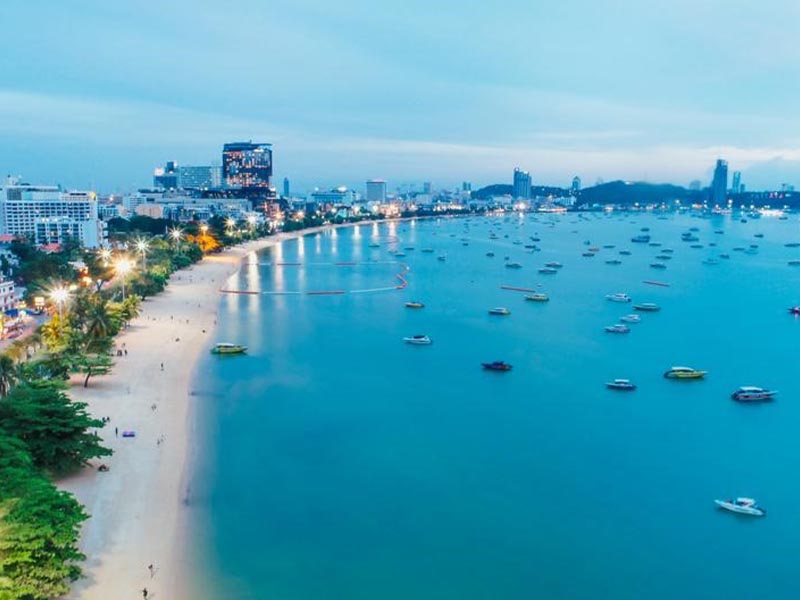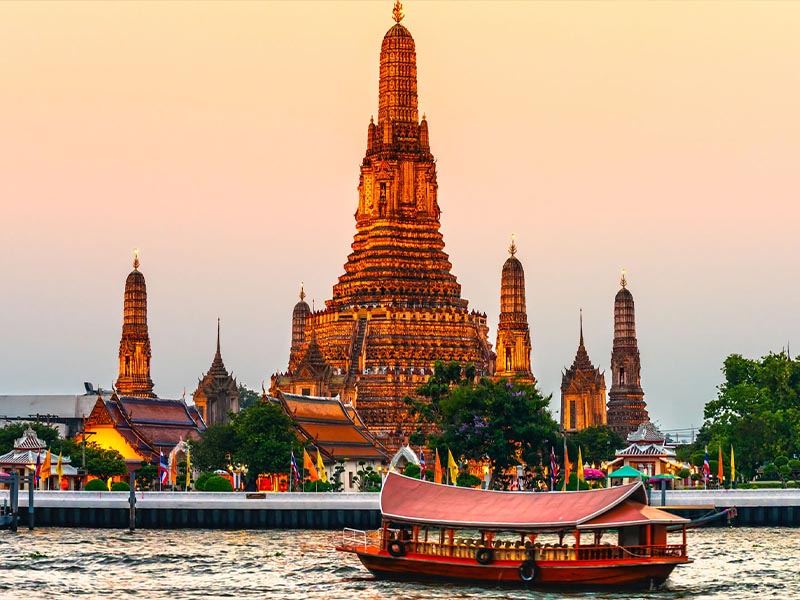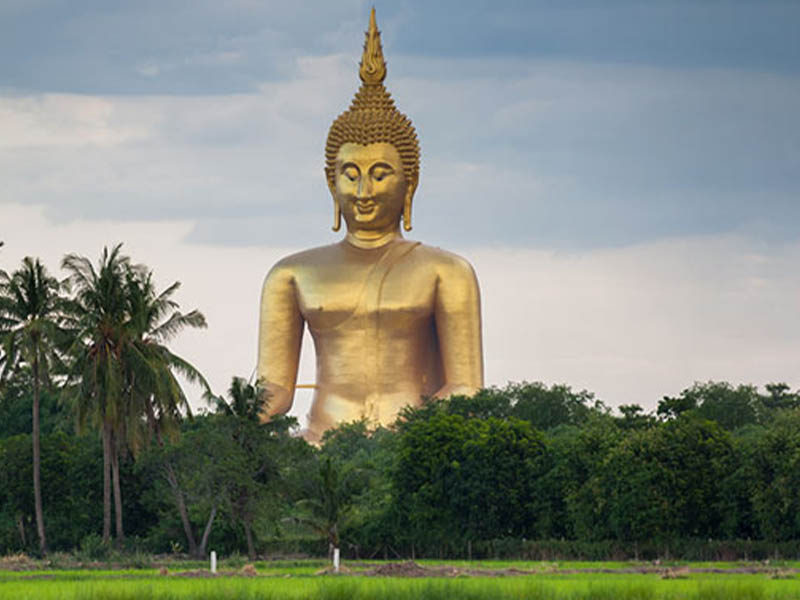Popular check-in points
Search for places to visit in Thailand
Wat Nang Ratchaworawihan and the Wat Nang Educational Museum | Bangkok
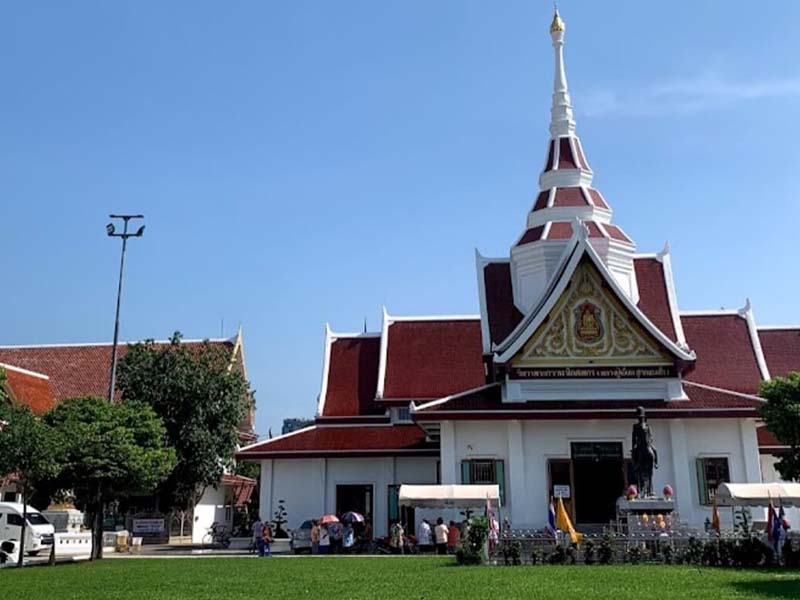
Wat Nang or Wat Nang Ratchaworawihan was built in 2260, during the reign of King Thaisa, by Phra Maha Phutthirakkhit and Muen Phet Phichit. In the past, Wat Nang was located in Bang Khun Thian District, Thonburi Province, as can be seen from the old sign of the temple while it was still located in Thonburi Province. Until Thonburi merged with Bangkok on the west side, Wat Nang was located in Chom Thong District, Bangkok.
During the reign of King Rama V, Luang Pu Eiam or Phra Phawana Koson Thera, who was the abbot of Wat Nang, was very famous. The abbot told us that “Wat Nang may not be very famous or beautiful, but in the amulet market, Luang Pu Eiam amulets from Wat Nang are very famous. The price never drops. A little ugly is in the hundreds of thousands, but a really good one is in the millions. Ask any amulet expert.” According to the stories of elderly people in the community, the term “Bang Chang Suan Nok, Bangkok Suan Nai” used to refer to two areas: the orchards and farms since the early Rattanakosin period in the Bang Khun Thian area and the orchards of Bang Chang-Amphawa, Samut Songkhram Province.
Wat Nang is one of the ancient temples in this area. The temples in this area are called “Wat Sam Phi Nong”, which refers to Wat Nang Ratchaworawihan, Wat Nang Nong Worawihan, and Wat Ratcha Orosaram Ratchaworawihan. There is also Wat Sala Khruen. Wat Nang Nong Worawihan and Wat Ratcha Orosaram Ratchaworawihan were renovated during the reign of King Rama III, resulting in most of the art that appears in the temple being Chinese art. Chinese tiles are decorated on the gables of the temple’s chapels and temples. The mother of King Rama III renovated Wat Nang, resulting in a more Thai-style mix than Wat Nang Nong and Wat Ratcha Orosaram Ratchaworawihan, but there is still some Chinese art mixed in. Wat Nang is an ancient temple that has been around since the late Ayutthaya period, at least during the reign of King Thaisa, because there is an ancient bell in the temple with an inscription on it indicating the year 2260, but it does not guarantee that the temple was built in that year. It may have been earlier.
As for the reason why this temple is called “Wat Nang”, there is no definite answer, but there are two ideas that are still being debated. The first idea is that in the past, this temple used to make a lot of leather puppets. But another idea says that when the temple was first built, drums were made in a systematic manner in the temple area, with many drum skins placed in the temple grounds. Both ideas are interesting.
Until the reign of King Nangklao, Somdech Phra Sri Suralai, the Royal Mother, or ‘Than Riem’, reestablished the entire temple between 1824 and 1835. The important reason why she chose to renovate and reestablish this temple is interesting because this area was the former residence or home of Than Pheng, the grandmother of King Nangklao. Therefore, it is understandable that a high-ranking royal family member, the mother of the King, chose to renovate this temple, even though it was located deep in a garden on the Thonburi side of the river.
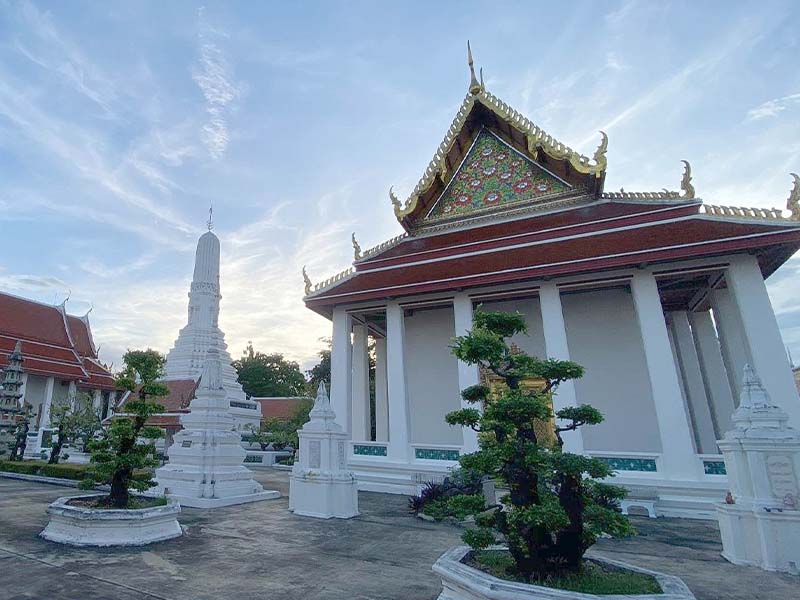



Thailand travel guide..
City Highlights Temple , Market Walking Tour and more....
Travel in other provinces
Thailand has a variety of tourist attractions, both natural and cultural, and many interesting activities. During this time, there are recommended places to visit, such as visiting the fields of wild ginger flowers at Sai Thong National Park, watching the sea of mist at Khao Kho, or experiencing nature at Umphang.
All Provinces
